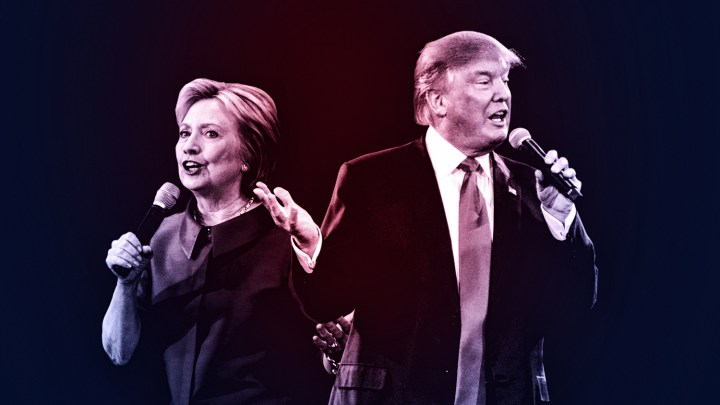
Overall, Twitter revealed that approximately 75 million tweets relating to election night were sent in just under 24 hours on Tuesday. The biggest spikes came at around midnight ET, and then at 3 a.m. ET when Donald Trump declared victory. The numbers were so great that Twitter broken its 2012 election record by 9 p.m. ET with over 35 million tweets shared.
Over 75M global Tweets were sent related to #Election2016 through 3am ET when president-elect @realDonaldTrump claimed victory pic.twitter.com/AWDBRJR4Rn
— Twitter Government (@gov) November 9, 2016
Mr. Trump’s first tweet as president-elect has now received 200,000 shares and over half a million likes.
Such a beautiful and important evening! The forgotten man and woman will never be forgotten again. We will all come together as never before
— Donald J. Trump (@realDonaldTrump) November 9, 2016
The night was filled with chatter, as celebs and general users came together to post their thoughts and reactions as the results rolled in. Hillary Clinton, on the other hand, refrained from using Twitter until a few hours ago. The Democratic candidate broke her silence with a stream of tweets thanking her supporters and campaign team. Her most-shared tweet was a message of empowerment addressed toward younger women in the United States — the post has since been re-tweeted 400,000 times and received 580,000 likes. Clinton also boasts the most popular tweet of the entire election season courtesy of her “delete your account” refrain directed at her Republican rival in June.
"To all the little girls watching…never doubt that you are valuable and powerful & deserving of every chance & opportunity in the world."
— Hillary Clinton (@HillaryClinton) November 9, 2016
Twitter’s election night coverage included a dedicated hashtag-activated emoji, live-stream coverage from BuzzFeed, and curated updates via Moments. Overall its traffic doubled on Tuesday, compared to a 30-percent increase for Facebook. The latter’s larger audience of 1.75 billion users ensure more interactions than its fellow social platform (Twitter currently has 316 million users).
In terms of general conversation, Facebook generated 716.3 million posts, likes, comments, and shares about the election. The social network boasted a larger roster of media providers through its Live video portal. Consequently, election-related video content drew 643 million views.
However, Facebook has trumped Twitter overall this election season. The company’s election-related push had a significant impact during the entirety of the season. This was witnessed last month when
On the other hand, there is another view emerging in the new light of a Trump presidency. This argument holds that Facebook has had an adverse affect on politics, courtesy of its algorithmic News Feed — which lacks diversity in regard to political content — creating an echo chamber of views that serve to reaffirm its users’ opinions. Add to that the fake news problem currently plaguing the site, and you have a problematic scenario. But to entertain the notion that
Ultimately, many Americans will be glad to see the back of a fraught election season that saw its battle lines etched across social platforms. As a recent survey by the Pew Research Center pointed out, the majority of social media users are tiring of political content and confrontation on social media. The study also revealed the divisive nature of digital platforms, with users stating their online interactions with people on the opposite side of the political spectrum left them feeling as if they had less in common than they thought.
On an optimistic note, the same study claimed social media can encourage positive engagement — eight in 10 users, for example, said social media can help people get involved with political issues that matter to them. Looking ahead, it will be up to everyone to remain engaged online (and offline) in order to bridge these divides.
Editors' Recommendations
- What is Section 230? Inside the legislation protecting social media
- Trump signs executive order targeting social media companies
- Trump plans executive order targeting social media after Twitter fact-check spat
- Trump’s FCC order could make social media even more of a garbage fire
